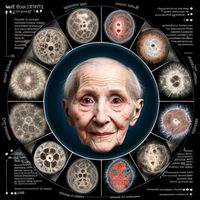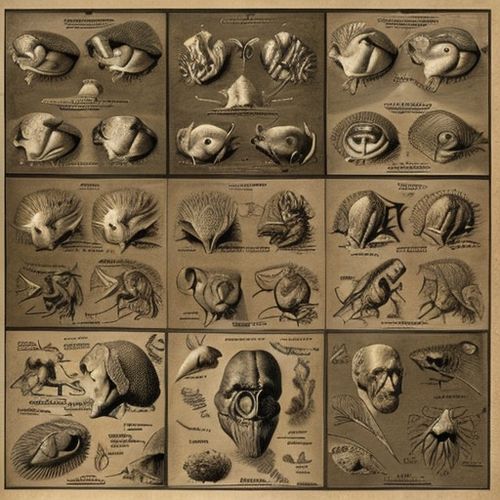In recent decades, the pursuit of extending human lifespan has become an increasingly prominent topic in the scientific community. Scientists from various fields have dedicated themselves to uncovering the secrets that could potentially add more years, and more importantly, more quality years to our lives.
Genetic Insights
One of the most promising avenues lies in genetics. Researchers have identified certain genes associated with longevity in various organisms. For example, in some long-lived species like the naked mole-rat, specific genes seem to confer resistance to age-related diseases and cellular deterioration. By studying these genes and understanding how they function, scientists hope to find ways to manipulate our own genetic makeup. Through gene editing technologies like CRISPR-Cas9, although still in its infancy in this context, there is potential to correct genetic mutations that predispose us to premature aging or debilitating diseases. However, ethical considerations loom large as we tread into this territory, as any changes to the human germline could have far-reaching consequences for future generations.
Cellular Senescence and Telomeres
Cellular senescence, the process by which cells lose their ability to divide and function properly, is a key factor in aging. Telomeres, the protective caps at the ends of chromosomes, play a crucial role. Each time a cell divides, telomeres shorten, and when they reach a critically short length, cells enter senescence. Scientists have been exploring ways to either maintain or lengthen telomeres. Telomerase, an enzyme that can elongate telomeres, has been a focus of research. While activating telomerase holds the promise of rejuvenating cells, there is a risk of uncontrolled cell growth and potential cancer development. Striking the right balance is essential, and ongoing studies are looking at targeted activation of telomerase only in specific cell types to avoid these dangerous side effects.
Metabolic Pathways and Caloric Restriction
Metabolic processes also have a profound impact on aging. Caloric restriction has been shown in numerous studies to extend lifespan in a variety of organisms, from yeast to mammals. By reducing calorie intake while maintaining proper nutrition, organisms seem to activate a suite of protective mechanisms. These mechanisms involve changes in metabolic pathways, such as the activation of autophagy, a process where cells break down and recycle damaged components. Understanding these metabolic shifts and finding drugs or dietary interventions that mimic caloric restriction without the need for extreme dieting could be a game-changer. Compounds like rapamycin, which targets a key protein involved in cell growth and metabolism, have shown promise in extending lifespan in some animal models, although its long-term effects and potential side effects in humans need further investigation.
Lifestyle Factors and Their Synergistic Effects
Beyond the laboratory bench, lifestyle factors cannot be overlooked. Regular exercise has been consistently associated with better health and potentially longer lives. It improves cardiovascular function, boosts the immune system, and helps maintain muscle mass and bone density. A diet rich in antioxidants, such as fruits, vegetables, and nuts, can combat oxidative stress, a major contributor to aging. Additionally, stress management through techniques like meditation and mindfulness can reduce the harmful effects of chronic stress on the body. These lifestyle elements work synergistically; for example, exercise combined with a healthy diet amplifies the beneficial effects on overall health and longevity.
In conclusion, while significant progress has been made in understanding the mechanisms underlying aging and the potential to extend human lifespan, there is still a long way to go. The scientific community must continue to navigate the complex web of genetic, cellular, metabolic, and lifestyle factors, all while grappling with ethical and practical considerations. But with continued research and innovation, the dream of adding more healthy, fulfilling years to human lives may one day become a reality.

By /May 21, 2025

By /May 21, 2025

By Natalie Campbell/May 21, 2025

By Victoria Gonzalez/May 21, 2025

By Noah Bell/May 21, 2025

By Joshua Howard/May 21, 2025

By Olivia Reed/May 21, 2025

By David Anderson/May 21, 2025

By Victoria Gonzalez/May 21, 2025

By Sophia Lewis/May 21, 2025

By Daniel Scott/May 21, 2025

By Jessica Lee/May 21, 2025

By Jessica Lee/Dec 22, 2024

By Emily Johnson/Dec 22, 2024

By Elizabeth Taylor/Dec 22, 2024

By Benjamin Evans/Dec 22, 2024

By Elizabeth Taylor/Dec 22, 2024